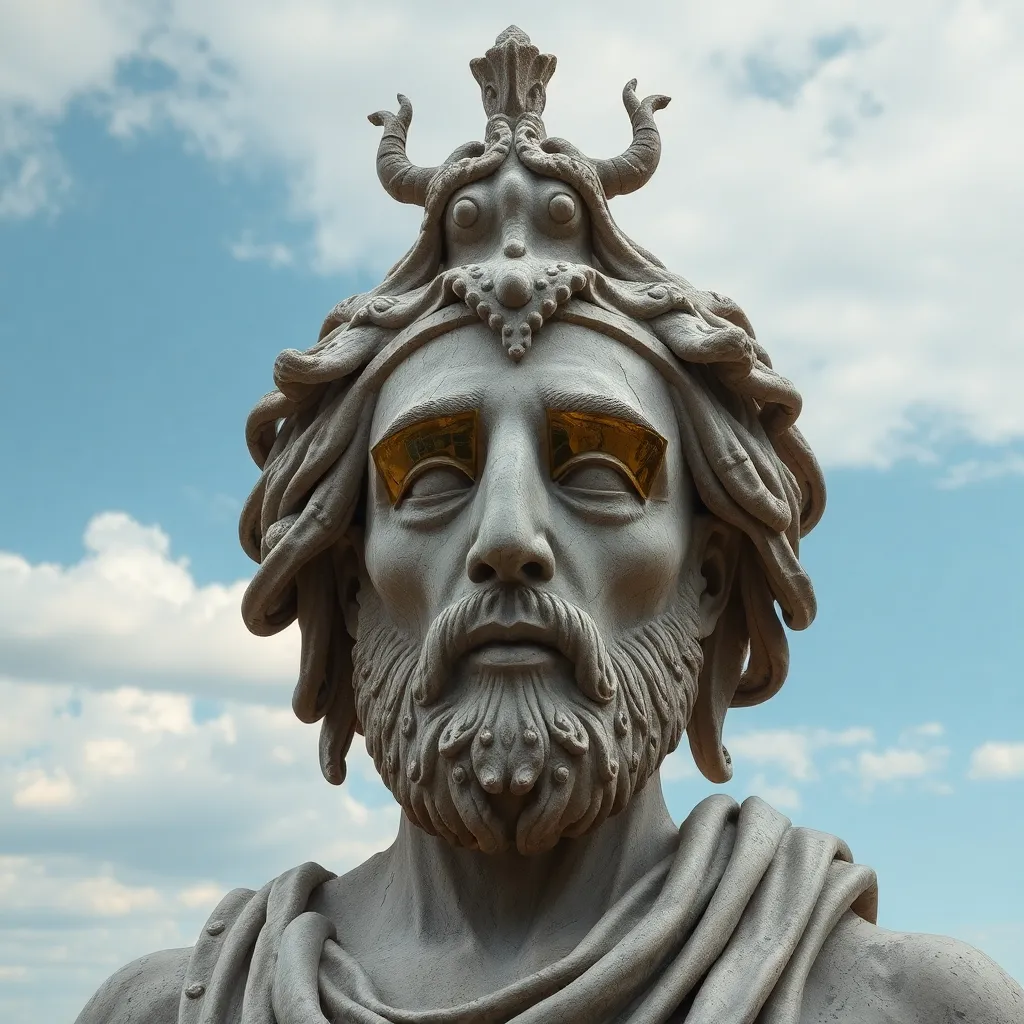The Cyclops as a Reflection of Ancient Greek Values
I. Introduction
The Cyclops, a one-eyed giant from Greek mythology, serves as a fascinating figure through which we can explore the values and norms of ancient Greek society. These mythical beings appear prominently in various stories, most notably in Homer’s “Odyssey,” where they embody themes of hospitality, civilization versus barbarism, and the importance of intelligence. Understanding these themes is crucial for comprehending the cultural identity of ancient Greece.
Mythology played a vital role in ancient Greek culture, providing moral lessons and cultural narratives that shaped the values of the time. This article argues that the Cyclops serves as a lens through which we can explore key values of ancient Greek society, such as hospitality, civilization versus barbarism, and the role of intelligence.
II. The Cyclops in Homer’s “Odyssey”
In Homer’s “Odyssey,” the Cyclops Polyphemus is depicted as a formidable and brutish creature. Described as large and strong, Polyphemus lives alone in a cave and tends to his sheep, embodying the wild and uncivilized aspects of nature. His lack of social interaction and adherence to societal norms highlights a stark contrast to the Greek values of community and civilization.
The encounter between Odysseus and Polyphemus is a pivotal moment in the narrative. Odysseus, seeking refuge and provisions, and his men enter Polyphemus’ cave, only to find themselves trapped by the Cyclops. This encounter escalates into a battle of wits, where Odysseus uses cunning to escape. By telling Polyphemus that his name is “Nobody,” Odysseus outsmarts the Cyclops, ultimately blinding him and fleeing with his men.
The portrayal of the Cyclops in this narrative is significant, as it reflects the broader themes of the story—particularly the conflict between civilization and barbarism, as well as the consequences of violating the sacred laws of hospitality.
III. Hospitality (Xenia) and Its Violations
Xenia, or hospitality, is a cornerstone of ancient Greek culture, emphasizing the importance of treating guests with respect and generosity. This sacred bond was believed to be protected by the gods, making violations of xenia particularly egregious.
Polyphemus’ actions starkly violate these hospitality norms. Instead of welcoming Odysseus and his men, he captures them and intends to eat them. This breach leads to dire consequences, not only for Polyphemus but also for Odysseus and his men, as it sets off a chain of events that prolongs their journey home.
- Odysseus’ cleverness allows him to escape, but the violation of xenia results in the wrath of Poseidon, Polyphemus’ father.
- Polyphemus’ disregard for hospitality ultimately brings misfortune and suffering to himself.
IV. Civilization vs. Barbarism
The Cyclops serves as a powerful symbol of barbarism in contrast to the civilization represented by Odysseus. Polyphemus embodies a life governed by brute strength and instinct rather than reason and social order. He lives in isolation, disconnected from the communal values that define Greek culture.
Odysseus, on the other hand, represents the ideal of a civilized hero. His ability to think strategically and communicate effectively highlights the Greek value placed on intellect and social cohesion. This dichotomy between Odysseus and Polyphemus reflects the Greeks’ view of themselves as a civilized people in contrast to the barbaric others.
V. The Role of Intelligence and Cunning
Odysseus is celebrated as the archetype of cleverness and resourcefulness in Greek mythology. His encounter with Polyphemus showcases the value of intelligence over brute strength. By employing deception, Odysseus not only saves himself and his men but also demonstrates the importance of wit in overcoming challenges.
The use of cunning in Odysseus’ encounter is significant. He devises a plan to blind Polyphemus and escape, showcasing that intelligence is a critical asset in the face of overwhelming physical power. This emphasis on cleverness as a virtue reflects a broader societal value in Greek culture, where intellectual prowess was often held in higher regard than mere physical strength.
VI. The Cyclops in Art and Literature
The Cyclops has been a popular subject in ancient Greek art, often depicted in pottery, sculpture, and frescoes. These representations highlight the enduring fascination with the creature and the themes associated with him.
In literature, the Cyclops has influenced numerous works beyond the “Odyssey.” Writers and artists throughout history have drawn inspiration from the myth, using it as a metaphor for various themes such as isolation, the struggle between civilization and barbarism, and the triumph of cunning over strength.
The Cyclops remains a cultural symbol, representing the complexities of human nature and societal values. His legacy endures in modern interpretations, reflecting the timelessness of these themes.
VII. Lessons and Morals from the Cyclops Myth
The encounter between Odysseus and Polyphemus imparts several key lessons. Firstly, it underscores the importance of hospitality and the dire consequences of violating it. Secondly, it illustrates the value of intelligence and cunning in overcoming obstacles and adversaries.
These lessons resonate with broader Greek values and ethics, emphasizing the significance of community, respect for others, and the intellectual virtues that were highly esteemed in their society. Moreover, the morals derived from this myth remain relevant in contemporary society, as themes of hospitality, respect, and the clever use of intellect continue to be vital in human interactions.
VIII. Conclusion
The Cyclops, particularly through the lens of Polyphemus in the “Odyssey,” serves as a significant figure in understanding ancient Greek mythology and the values it espoused. Through the themes of hospitality, the dichotomy of civilization versus barbarism, and the celebration of intelligence, the myth reflects the cultural identity of the Greeks.
Moreover, the enduring impact of these values can be observed in modern society, illustrating how ancient myths continue to shape our understanding of human behavior and societal norms. The Cyclops remains a potent symbol, reminding us of the lessons that mythology can teach about culture and identity.




